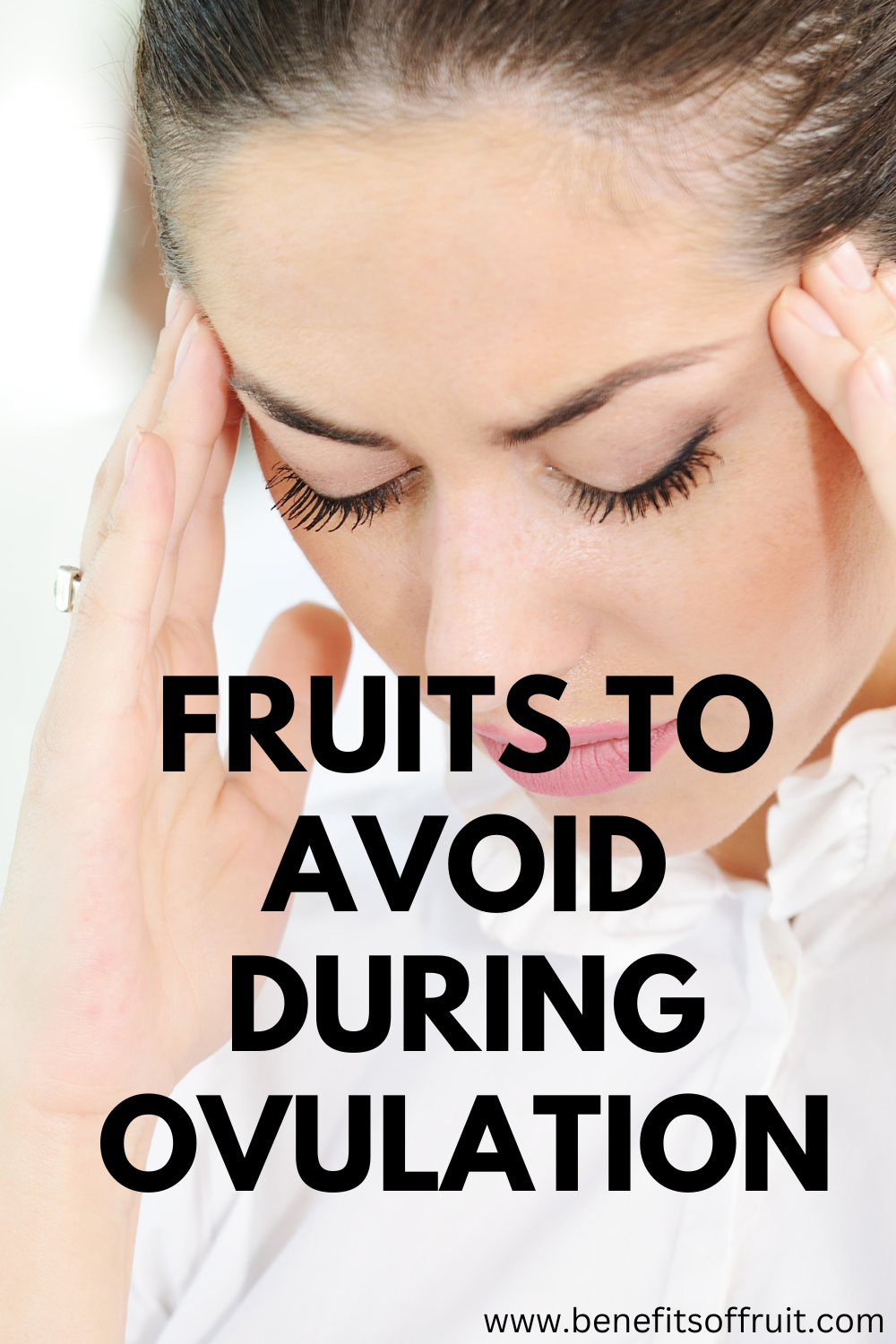Ovulation, a crucial phase in the menstrual cycle, represents the period when a mature egg is released from the ovary. This natural process is tightly regulated by hormones and requires a delicate balance in the body. Nutrition plays a pivotal role in maintaining this balance, and certain dietary choices can significantly influence hormonal activity. While a well-rounded diet can support reproductive health, some foods, including specific fruits, might adversely impact ovulation. This article will delve into which fruits to avoid during ovulation and why they may hinder the process.
The Impact of Diet on Ovulation
Hormonal Balance:
Hormonal balance is critical for successful ovulation. Estrogen and progesterone, the primary hormones regulating the menstrual cycle, are sensitive to dietary changes. Nutrients like vitamins, minerals, and antioxidants found in fruits can either support or disrupt this hormonal equilibrium. An imbalance could lead to anovulation (lack of ovulation) or irregular cycles.
Blood Sugar and Insulin Levels:
Fruits contain varying amounts of natural sugars. Some high-sugar fruits can cause blood sugar spikes, which in turn can affect insulin levels. Since insulin plays a role in the production and activity of sex hormones, elevated insulin can lead to hormonal imbalances, potentially disrupting ovulation.
Antioxidants and Inflammation:
Antioxidants help combat oxidative stress, a condition that can lead to chronic inflammation and affect fertility. Some fruits, while generally healthy, can provoke inflammation in certain individuals, especially those sensitive to their specific compounds. Chronic inflammation is linked to conditions like polycystic ovary syndrome (PCOS), which can impair ovulation.
Fruits to Avoid During Ovulation
High-Sugar Fruits:
- Examples: Mangoes, bananas, grapes.
- Reasons to Avoid: These fruits have a high glycemic index (GI), meaning they can rapidly elevate blood sugar levels. High GI foods are known to affect insulin sensitivity, which can lead to hormone imbalances. For women with PCOS or those sensitive to insulin, such spikes can disrupt ovulation by impairing the delicate hormonal balance needed for it.
Citrus Fruits:
- Examples: Oranges, lemons, limes.
- Reasons to Avoid: Citrus fruits are known for their high vitamin C content, which is beneficial in moderation. However, they can increase stomach acidity, which might interfere with the absorption of other nutrients critical for hormone production. Excess acidity may also exacerbate gastrointestinal issues, potentially impacting hormonal balance indirectly.
Dried Fruits:
- Examples: Raisins, dates, figs.
- Reasons to Avoid: Dried fruits are concentrated sources of natural sugars and calories. Their high sugar content can lead to blood sugar spikes similar to high-GI fruits, affecting insulin sensitivity and potentially disrupting ovulation. Additionally, their calorie density can contribute to weight gain, which may also negatively impact ovulation.
Pineapple:
- Reasons to Avoid: Pineapple contains bromelain, an enzyme that has anti-inflammatory properties. While beneficial in many contexts, bromelain can affect the uterine lining in some women. Although not directly linked to ovulation, changes in the uterine lining can affect the subsequent stages of the menstrual cycle, including implantation, which may indirectly relate to ovulation health.
Papaya:
- Reasons to Avoid: Papaya contains latex, a substance that can stimulate uterine contractions. While this is more of a concern during pregnancy, consuming papaya during ovulation might influence hormone levels, especially for women with hormone sensitivities. This effect might not directly cause anovulation but could influence the menstrual cycle’s overall balance.
Fruits That Support Ovulation
Berries:
- Examples: Blueberries, strawberries, raspberries.
- Benefits: Berries are low on the glycemic index and high in antioxidants, making them ideal for maintaining stable blood sugar levels and reducing inflammation. They support hormonal balance without significantly impacting insulin levels, providing a safe fruit option for women focused on reproductive health.
Avocado:
- Benefits: Avocados are rich in healthy monounsaturated fats, which are essential for hormone production. The fats in avocados can aid in absorbing fat-soluble vitamins like A, D, E, and K, which play a role in reproductive health. Additionally, avocados support cardiovascular health, which is crucial for overall well-being during ovulation.
Apples:
- Benefits: Apples are high in fiber, which helps regulate blood sugar levels by slowing sugar absorption. They also have a low GI, making them a safe option for maintaining insulin sensitivity. Additionally, apples are rich in antioxidants, which can support overall hormonal balance.
Pomegranate:
- Benefits: Pomegranates are packed with antioxidants, vitamins, and minerals. They have been linked to improved blood flow, which can support the reproductive organs. The antioxidants in pomegranates help fight inflammation and maintain hormonal balance, making them beneficial for women focused on optimizing ovulation.
Conclusion
Maintaining a balanced diet is crucial during ovulation, as the foods you consume can significantly impact your reproductive health. While fruits are generally considered healthy, some can adversely affect ovulation due to their sugar content, acidity, or specific compounds. High-sugar fruits like mangoes and bananas, citrus fruits like oranges, dried fruits, and specific fruits like pineapple and papaya, may negatively affect ovulation in some women.
